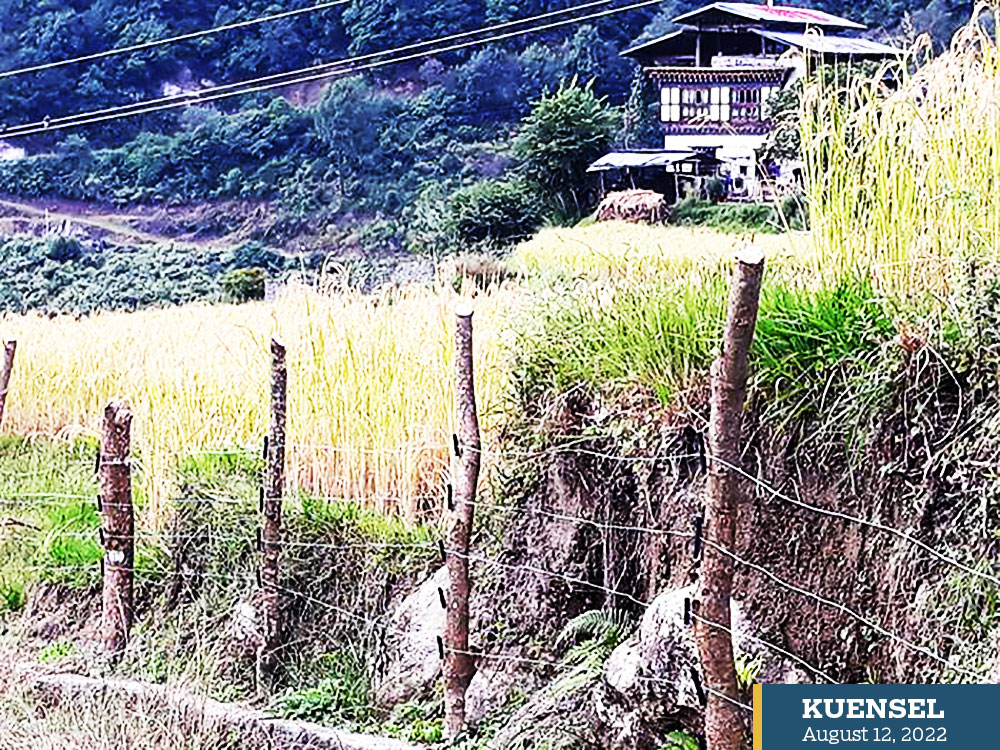Nima Wangdi
Farmers in the country on average lose about 8,250 metric tonnes of crops worth Nu 171.75 million (M) every year to wild animals.
A senior forestry officer from the nature conservation division, Namgay Wangchuk said that the human-wildlife conflict (HWC) is transboundary and very common. He said that in Bhutan, wild herbivores including monkeys destroy crops. Likewise, wild predators also killed about 155 livestock every year.
He presented the report at the International Centre for Integrated Mountain Development’s (ICIMOD) Bhutan country consultation meeting for co-designing the Medium-Term Action Plan V (2023-2026), yesterday in Thimphu.
Namgay Wangchuk said Asiatic black bears mauled about seven people and elephants killed about five people in a year. The wild animals also damaged properties.
He said, on the other hand, retaliatory killing by people and poaching are major issues. Around 206 wild animals have been rescued annually.
Namgay Wangchuk said that the division is planning to use more hybrid fencing – Chain-link, stone wall and electric fencing. Solar corrals are being used to protect Yak calves from wild predators and feral dogs.
The division is also planning to promote live fencing and update the HWC hotspot map.
He said, while the Covid-19 pandemic has disrupted the progress of the interventions, delay in access to funds has also contributed to the problem.
The senior forester suggested implementing successful HWC mitigation measures, capacity building of field staff and communities, improving collaboration and coordination among the stakeholders at the regional level, and timely mobilisation of funds as the way forward.
Namgay Wangchuk said that HWC is a global issue and it is common in all the Hindukush Himalayan range countries. He said greater regional cooperation is needed for both mitigation measures and to enhance wildlife habitats and corridors.
He said, in 2018, ICIMOD had facilitated Siliguri Dialogue, which recommended several actions to deal with HWC management in the Kanchenjunga landscape. Some actions related to the literature review, data updates, hotspot mapping, implementation of mitigation measures and capacity development are in progress with the regional HWC committee having formed.
The regional task force was formed and some actions are being implemented. “HWC has also been one of the priority activities in the 12th Plan at the national level.”
ICIMOD’s Director General, Pema Gyamtsho (PhD) said that the region is posed with many calamities and challenges resulting from climate change. “No one country can prevent them and it requires efforts of all the member countries. Regional collaboration and cooperation are crucial.”
He said that the member countries can also exchange ideas and learn from each other in countering the challenges.


